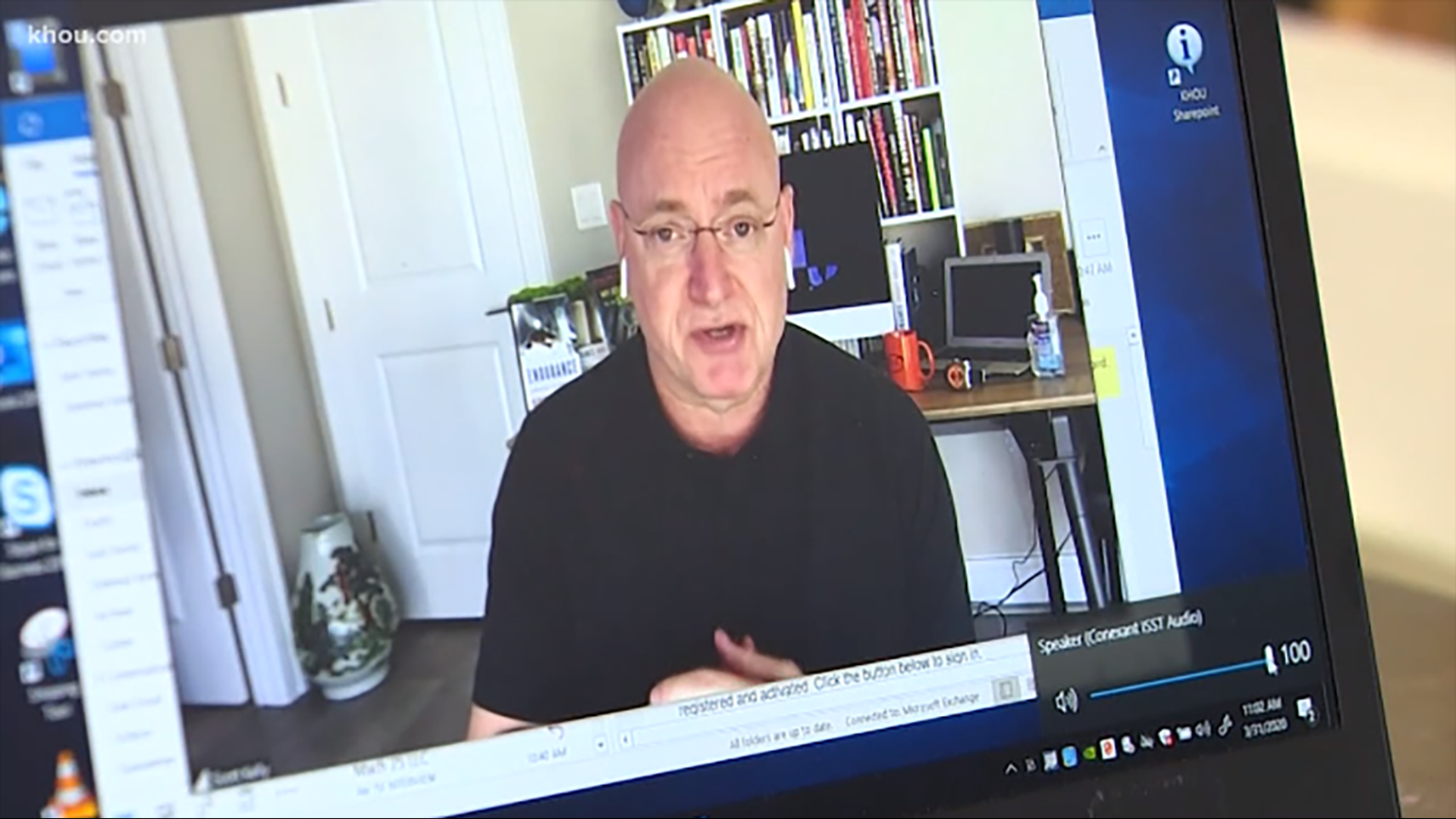HOUSTON — If you find you’re having difficulty dealing with social isolation in these difficult times of coronavirus concerns, how about soaking in some advice from a Houstonian who knows isolation quite well.
From March 2015 to March 2016 Scott Kelly lived aboard the International Space Station.
Isolation came with the job.
"A lot of factors that are part of living in an isolated environment can suppress your immune systems and that's the last thing we need right now," Kelly said.
Kelly said he learned a lot about how to deal with isolation. He said it helps to have a daily schedule.
"If you don't have a schedule for your days, these days are gonna run on forever," Kelly said.
He said part of your schedule should include exercise and going outside, while still observing social distancing rules.
He said bacteria and viruses grow quickly aboard the space station, so part of his daily routine is cleaning his home, giving it the astronaut treatment.
"I kinda treat the front of my apartment in downtown Houston, almost like an airlock; bad stuff outside, good stuff inside," he said.
He also suggests taking up a hobby.
"Learn how to play an instrument if you have that ability, art, reading a book, a real book, not something on a device where you’re constantly getting notifications,” he said.
While in space, Kelly wrote a journal, which he said helped and also gave him something to look back on later.
Even in space, he stayed connected with friends and loved ones through emails and video conferencing.
He’s doing that same thing now.
"I've found so far that I've been connecting with people, family members, friends that I haven't seen in a long time," he said.
Connecting, even when things seem so disconnected. If Kelly can do it from space, we can all do it down here.
Coronavirus symptoms
The symptoms of coronavirus can be similar to the flu or a bad cold. Symptoms include a fever, cough and shortness of breath, according to the Centers for Disease Control. Some patients also have nausea, body aches, headaches and stomach issues. Losing your sense of taste and/or smell can also be an early warning sign.
Most healthy people will have mild symptoms. A study of more than 72,000 patients by the Centers for Disease Control in China showed 80 percent of the cases there were mild.
But infections can cause pneumonia, severe acute respiratory syndrome, kidney failure and even death, according to the World Health Organization. Older people with underlying health conditions are most at risk for becoming seriously ill. However, U.S. experts are seeing a significant number of younger people being hospitalized, including some in ICU.
The CDC believes symptoms may appear anywhere from two to 14 days after being exposed.
Human coronaviruses are usually spread through...
- The air by coughing or sneezing
- Close personal contact, such as touching or shaking hands
- Touching an object or surface with the virus on it, then touching your mouth, nose or eyes before washing your hands.
Help stop the spread of coronavirus
- Stay home when you are sick.
- Eat and sleep separately from your family members
- Use different utensils and dishes
- Cover your cough or sneeze with your arm, not your hand.
- If you use a tissue, throw it in the trash.
- Follow social distancing
Lower your risk
- Wash your hands often with soap and water for at least 20 seconds. If soap and water are not available, use an alcohol-based hand sanitizer.
- Avoid touching your eyes, nose, and mouth with unwashed hands.
- Avoid close contact with people who are sick.
- Clean and disinfect frequently touched objects and surfaces.
- If you are 60 or over and have an underlying health condition such as cardiovascular disease, diabetes or respiratory illnesses like asthma or COPD, the World Health Organization advises you to try to avoid crowds or places where you might interact with people who are sick.
Get complete coverage of the coronavirus by texting 'FACTS' to 713-526-1111.

